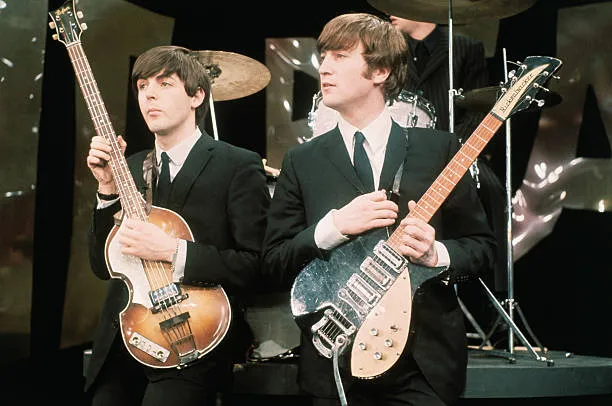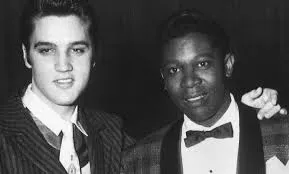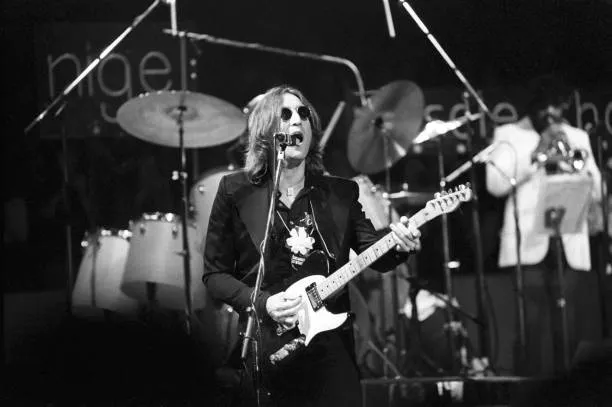Elton John, one of the most iconic and flamboyant figures in music history, is known for his incredible songwriting, dazzling performances, and timeless hits.
Yet, those following his illustrious career have noted a significant transformation in his voice over the decades.
Elton John's voice has undergone substantial changes, raising curiosity and sparking discussions among fans and music enthusiasts alike.
This article aims to unravel the reasons behind the evolution of Elton John's voice and the impact it has had on his legendary career.
The Early Years: A Bright and Melodic Start

Elton John's musical journey began in the late 1960s, and by the early 1970s, he had established himself as a powerhouse in the music industry.
His early voice was characterized by its smooth, clear, and melodic tones.
Songs like "Your Song," "Rocket Man," and "Tiny Dancer" showcased his ability to deliver soaring high notes with remarkable ease and emotional depth.
This period marked the height of his vocal agility, with a youthful timbre that captivated audiences worldwide.
Health Struggles and Vocal Strain
As Elton John's career progressed, so did the demands on his voice. The rigorous touring schedules, live performances, and studio recordings took a toll on his vocal cords.
By the late 1970s and early 1980s, signs of vocal strain began to emerge. Constant use of his voice without adequate rest and the need to perform night after night started to erode the crystalline quality that characterized his early years.
Additionally, Elton John's lifestyle choices during this period also contributed to the strain on his voice.
The excessive use of alcohol and drugs, combined with a frantic pace of life, exacerbated the wear and tear on his vocal cords.
The Throat Surgery: A Turning Point

One of the most pivotal moments in the evolution of Elton John's voice came in 1986 when he underwent throat surgery to remove potentially cancerous nodules from his vocal cords.
The surgery was a necessary intervention to prevent further damage and safeguard his health. However, its impact on his voice was profound and irreversible.
Post-surgery, Elton's vocal range experienced a noticeable drop. The high, soaring notes that once defined his music were now harder to reach.
His voice took on a deeper, huskier, and more gravelly quality. While the surgery may have saved his voice and allowed him to continue his career, it also marked a significant transformation in his vocal character.
Adapting to Change: A New Vocal Style
Elton John, being the adaptable and consummate artist he is, embraced the changes in his voice and modified his singing style accordingly. This adaptation was evident in his subsequent albums and live performances.
His songs began to reflect his new vocal range, with arrangements that showcased his deeper, more resonant tones.
Tracks like "Sacrifice" and "I Don't Wanna Go On With You Like That" highlighted the strength of his altered voice.
The emotional delivery now carried a different kind of weight, drawing on the deeper registers that added a mature, introspective quality to his music.
Elton’s ability to continuously evolve as an artist allowed him to remain relevant and appreciated by audiences worldwide.
Influence of Age and Continued Performances

As Elton John aged, the natural changes in his voice were further influenced by the relentless schedule of performances and tours.
Age inevitably impacts vocal cords, leading to a loss of elasticity and flexibility.
For a singer of Elton's caliber, these changes were magnified by decades of extensive use.
Moreover, his dedication to live performances meant that his voice had little time to recuperate, leading to accumulated fatigue. Despite these challenges, Elton’s commitment to his fans never wavered.
His live performances, albeit with a different vocal style, continued to exude the passion and artistry that defined his career.
Vocal Training and Maintenance
Understanding the importance of vocal maintenance, Elton John incorporated vocal training into his routine, particularly after his surgery.
Working with vocal coaches, he developed techniques to protect and optimize his voice. These exercises helped him adapt to his new vocal range and mitigate further strain.
Vocal warm-ups, proper breathing techniques, and hydration became integral parts of his pre-performance rituals.
These practices ensured that he could deliver powerful performances and maintain vocal health despite the ongoing demands of his career.
Artistic Choices and Musical Evolution
Elton John’s evolving voice also influenced his artistic choices and musical direction.
Collaborations with different artists and exploring various genres allowed him to experiment with new sounds and arrangements that suited his changed voice.
His work on the soundtrack for "The Lion King," including the hit "Can You Feel The Love Tonight," showcased his ability to adapt and thrive in diverse musical landscapes.
Furthermore, his collaborative album "The Union" with Leon Russell saw him delve into soulful, bluesy territories that resonated with his deeper vocal tones.
These projects highlighted Elton’s versatility and willingness to embrace change, ensuring his legacy endured.
The Farewell Yellow Brick Road Tour
Elton John's ongoing "Farewell Yellow Brick Road" tour, announced in 2018, serves as a poignant celebration of his extraordinary career while acknowledging the realities of his voice’s transformation.
The tour marked his decision to retire from touring, allowing him to focus on family and other passions.
Fans attending these farewell concerts are treated to a retrospective of his greatest hits, performed with a voice that, while different from his early years, is still filled with emotion and energy.
The tour symbolizes a full-circle moment, honoring his past while embracing the present.
Reflecting on Elton John’s Legacy

Elton John’s voice and its evolution over the decades is a testament to his resilience, adaptability, and unwavering commitment to his art.
While his voice may have changed, his ability to connect with audiences and convey deep emotions through music remains undiminished.
His journey as a vocalist is also a reflection of the broader human experience—adapting to changes, overcoming challenges, and finding new ways to express oneself.
Elton’s story encourages us to embrace the changes that life brings and to continue pursuing our passions, no matter the obstacles.
Final Thoughts
The transformation of Elton John's voice is an integral part of his remarkable journey as a musician.
From his early days of crystal-clear highs to the deeper, resonant tones of his later years, his voice has continually evolved, reflecting the various phases of his life and career.
Through it all, Elton John's voice has remained an instrument of profound expression, touching the hearts of listeners around the world.
As fans, we celebrate not only his iconic hits but also the resilience, adaptability, and enduring talent that have allowed him to thrive in the ever-changing landscape of the music industry.
The story of Elton John’s voice is a reminder of the beauty of evolution, the power of perseverance, and the timeless nature of true artistry.



